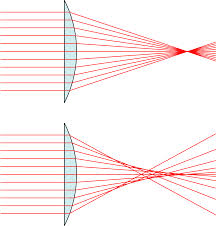
记忆方法
aberrantion的基本意思是“偏差”,一是偏离“正”,即偏离真理,偏离真实,偏离事实;二是偏离“常”,即偏离常轨,简言之即“偏离正常”,多用于思想、行为、道德等方面。可用作不可数名词,也可用作可数名词。
aberrantion也可指“偏离正常的人或事”,这时用作可数名词。
aberrant用作术语生物学上指“畸形;畸变”;医学上指“(轻度的)心理失常”;物理学上指“像差,色差”;天文学上指“光行差”。
英语词源
- aberration (n.)
- 1590s, "a wandering, straying," from Latin aberrationem (nominative aberratio) "a wandering," noun of action from past participle stem of aberrare "to wander out of the way, lose the way, go astray," from ab- "away" (see ab-) + errare "to wander" (see err). Meaning "deviation from the normal type" first attested 1846.
权威例句
- 1. Single people are treated as an aberration and made to pay a supplement.
- 独身者被当成异类,而且要付一笔额外的费用。
- 2. It became very clear that the incident was not just an aberration, it was not just a single incident.
- 事实已经很清楚,这件事不是偶发的,它并不是一起孤立的事件。
- 3. The removal of the chromatic aberration is then of primary importance.
- 这时消除色差具有头等重要性.
- 4. The resultant defect is known as chromatic aberration.
- 由此而产生的缺陷叫做色差.
- 5. One of the principal advantages of the reflecting glass is its complete freedom from chromatic aberration.
- 反射望远镜主要优点之一是它完全没有色差.